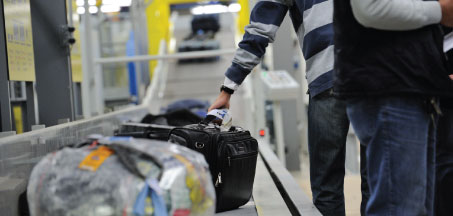
In recent years, the EIB has financed important projects at both hub and regional airports. This includes a €350 million loan agreement to help finance the continued upgrade and expansion of Amsterdam Airport Schiphol’s baggage handling system, which will be complete in 2013.
The EIB is the EU’s financing institution. Its shareholders are the 27 Member States, with its Board of Governors composed of the 27 Finance Ministers. The EIB’s role is to provide long-term finance in support of investment projects in various sectors, including transport. EIB funds are very relevant to European airports, e.g. through the grant of public loans at favourable market conditions for major infrastructure projects. Since the 1970s, more than 220 airport projects have been eligible for EIB funding. However, only a small fraction of the total funds available for the transport sector is earmarked for airport projects. For instance, in 2009, €642 million of funding was granted to the airport sector, which corresponds to 3.6% of the total investment volume in the transport sector.
The review of EU transport policy saw the European Commission adopt a new transport White Paper in March 2011 covering the next decade, entitled ‘Roadmap to a Single European Transport Area – Towards a competitive and resource efficient transport system’. In the context of this, the EIB launched a public consultation in March 2010 on the revision of its transport lending policy.
The aviation industry was well represented at the stakeholder meeting of 6 June 2011; alongside ACI EUROPE, IATA and AEA were also present. Köppchen reported that the aviation industry was united in supporting ACI EUROPE’s calls for continuous EIB funding of airport infrastructure in view of the looming capacity crunch – EUROCONTROL forecasts that air traffic in Europe will almost double by 2030.
Enabling airports to invest
Transport is vital to the European economy. Indeed, the sector as a whole represents 10% of EU GDP and provides more than 10 million direct jobs. Access to funding has become more challenging for airports as a result of the global financial crisis and, consequently, ACI EUROPE believes the revised EIB lending policy should recognise the funding of airport projects as a priority.
The modernisation and development of new airport infrastructure is essential in order to realise the benefits of a single European aviation market and further support economic growth. ACI EUROPE published a response to the EIB consultation in March, in which it states: “The strengthening of the European aviation sector’s competitiveness must be a key priority for European policymakers in the years to come, particularly in light of the mounting competitive pressure from new airport mega-hubs in the Middle East.”
ACI EUROPE believes that the revision of the EIB lending policy should be considered an opportunity to develop a more coherent infrastructure system. It urges that funding should be made available to airports for SESAR related projects, projects aimed at improving environmental performance, projects increasing physical capacity – where ground capacity limitations have a proven negative impact on the aviation network, and projects aimed at improving accessibility to airports.
In light of the many challenges facing Europe’s airports, ACI EUROPE believes the revised EIB lending policy should enable airports to invest in sustainable and competitive infrastructure.
Revision of the transport lending policy, taking into account stakeholder views and contributions, is taking place in September and October, and the draft revised policy and draft consultation report will be published on the EIB website in November. They will then be approved by the EIB’s governing bodies and the transport lending policy and consultation report will be published on the EIB website in December.







